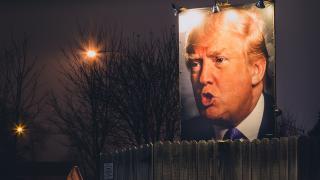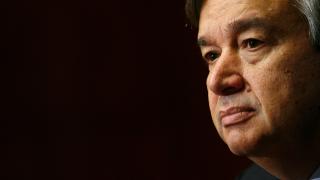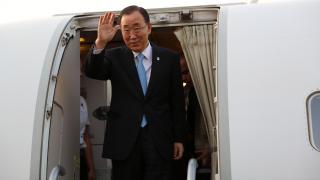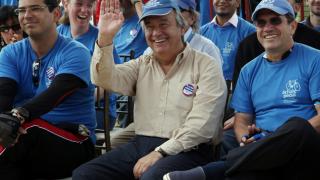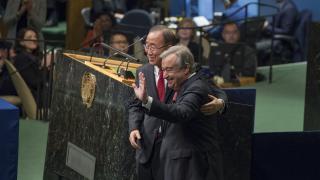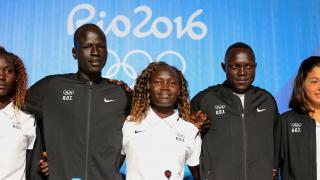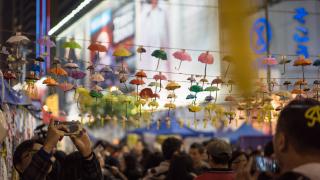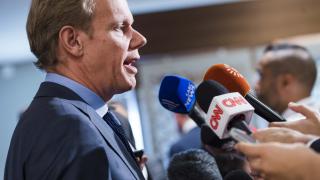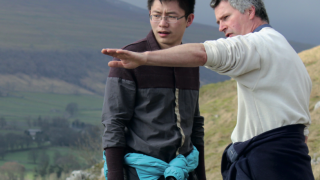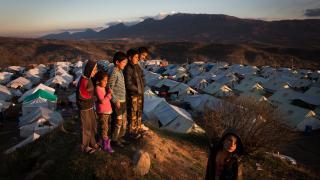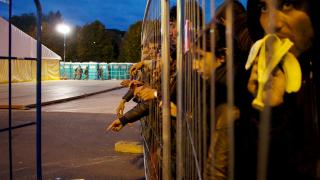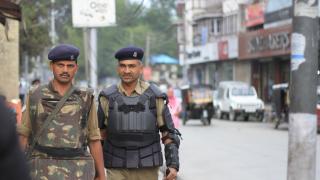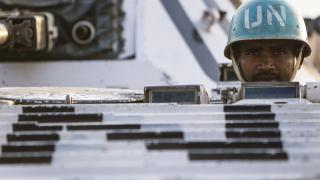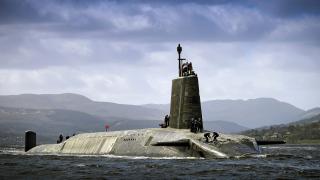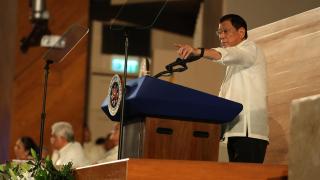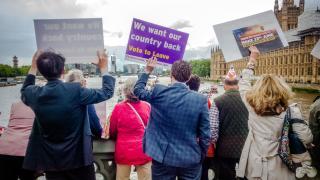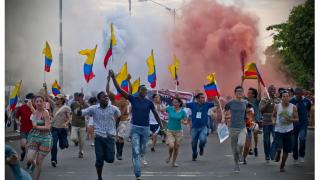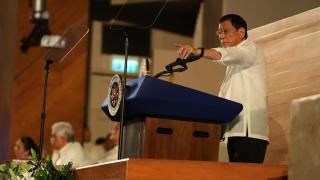
In February 2016, Donald Trump instructed attendees at a rally in Iowa to use violence against his critics.
If you see someone getting ready to throw a tomato, knock the crap out of them, would you? Seriously. Just knock the hell — I promise you, I'll pay the legal fees.
This was not the first time in his campaign that Mr Trump incited violence, and it would not be the last. Over the past year he has described the attacks at his rallies as “appropriate”.
All of this is a matter of public record, but when asked in March 2016, Trump told CNN, “I certainly don’t incite violence”.
Confronted with evidence of his inconsistency, Trump’s responses have ranged from blanket denials to blaming others. In October 2016, he even accused Barack Obama of paying people to start fights at his rallies.
It’s a startling response to media scrutiny. In this technology-ridden world, where every sentence becomes a sound-bite and every policy proposal is preserved for posterity, politicians have repeatedly been forced to face their flubs, and answer for their contradictions. For those whose pride won’t permit that, the new norm appears to be unabashed denial.
Such brazen duplicity has becoming worryingly common in political discourse, and it appears it can be used to incite violence with impunity. The best, or worst, example of this is Filipino President Rodrigo Duterte.
Duterte took office in June 2016, rising on a law and order platform from a sordid career as mayor of the crime-stricken province of Davao. During his tenure, he was accused of controlling armed vigilante groups which killed more than 1,400 people as part of a ‘war on drugs’. As mayor, he bragged about being involved and scoffed at claims that he had killed 700 people, saying, “They miscalculated. It’s 1,700”. He publicly vowed to kill 100,000 criminals in his first six months in Presidential office.
In the first 100 days of Duterte’s term, more than 3,500 people were murdered. According to Amnesty International, at least 1,500 civilians were killed in police narcotics operations and over 2,000 more were executed by unidentified vigilantes. To show his support, the President has offered bounties and given the military, police and civilians his “official and personal guarantee” of immunity from prosecution for all drug-related killings.
In October 2016 he told the media, “Hitler killed three million Jews. There are three million drug addicts. I’d be happy to slaughter them. If Germany had Hitler, the Philippines would have…” The President then pointed to himself.
In August 2016, Duterte published a state-sanctioned “kill list”, a list of people whom he said should be assassinated. Admitting that there may be innocent persons named on the list, he said that his “mouth has no due process” and added, “I don’t care about human rights, believe me”.
That much is easy to believe. What is more difficult to accept is Duterte’s denial of responsibility for the killings.
In October 2016, Filipino Senator De Lima commenced an inquiry into extrajudicial killings through the parliamentary Justice and Human Rights Committee, in an attempt to prove Duterte’s involvement. A former Davao vigilante hit-man was called and gave evidence that he had taken orders from Duterte.
The President’s office immediately denied the claims and Duterte himself accused the witness of perjury. Within a week of his testimony, the Senator had been lambasted, accused of corruption and ousted from the inquiry. Duterte accused her of suborning perjury and said, “If I were De Lima, ladies and gentlemen, I’d hang myself”.
It seems strange that there should be such a backlash against those accusing Duterte of the massacres, when he has publicly and proudly boasted of his involvement. It appears that the President feared the inquiry testimony would provide proof of his guilt and believed that somehow, in this post-truth world, those allegations would be more damning than his own confession.
And Duterte has retained his popularity. An October 2016 survey found that he enjoyed the support of 76 per cent of the country.
Using Trumpian tactics and the impunity of popularity, Duterte is maintaining his innocence before the inquiry. But to the press, with no apparent fear of reprisal, he admits, "Yes, I kill, that's true, but not that many. 1,700? Maybe more like 1,004."
Photo: Philippine President Rodrigo Roa Duterte delivering his first State of the Nation Address at Batasang Pambansa on July 25. Credit: Wikimedia Commons


